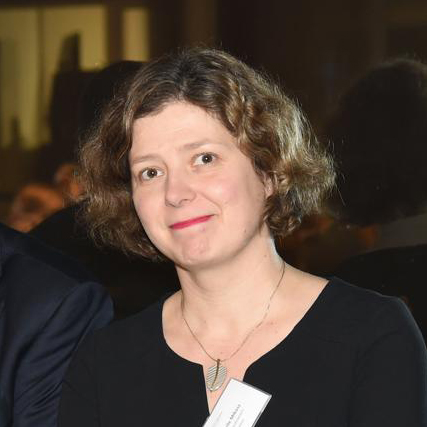Food Systems Podcast 52
In discussion with Emmanuelle Mikosz
Monday, Oct 02, 2023
What has the Forum for the Future of Agriculture been working on in the past few months, what has been achieved, and what’s coming up in the autumn and winter programme? In this special edition of the Food Systems Podcast, Mark Titterington is joined by Emmanuelle Mikosz, the Forum’s Deputy and Programme Director, to reflect and anticipate, including taking a look at next year’s Annual Conference.
Here is a summary of the conversation.
MT: The Forum has been busy over the summer. What stands out for you?
EM: After our annual event in March 2023 in Brussels, we had various regional events. The one that stands out for me was in Spain, at the end of May, which was linked to the Presidency of the European Council. It was an opportunity to discuss outcomes from our annual conference, get input from our regional colleagues in Spain, and make progress on how we implement our Call to Action.
EM: After May, we went on the road. Mark, you travelled to Washington, Chicago and Adelaide and met with colleagues in the Global Forum on Farm Policy and Innovation (GFFPI). Tell us about that.
MT: We launched GFFPI, our global partnership, with the Australian Farm Institute, Canadian Agri-Food Policy Institute and the Farm Foundation in the US, and we’ve been visiting each other’s events to make the case for global collaboration on important topics related to how we build a more resilient and sustainable food and agricultural system. We have had some great opportunities for discussions. It was good to get different perspectives and create a bond that will set us up well for what’s coming in autumn.
EM: There is plenty coming up from now until next March. What are the most important elements to mention for you?
MT: Starting to progress the Call to Action. We’ve sharpened it to talk about the importance of policy and legislation in enabling the transition of the food and agriculture system. And what can all of us, as stakeholders, do to try and build a system that is nature positive and climate smart? A key part of that is what we’ve been doing on regenerative agriculture, including publishing our first Perceptions and Insights report with some great takeaways on how to scale regenerative agriculture. It was based on 12 months of interviews and workshops with our network – very diverse people on both sides of the Atlantic contributed. At the end of October we have an event with our global partners at the OECD on the future of agricultural sustainability and the role of trade – that’s going to be a pivotal moment.
EM: Then in November we have an event on the recovery plan for Ukraine, where we can look at how we can prepare for the future of that region. Would you like to add anything about that?
MT: Both of these events are an opportunity to talk about getting a common understanding of what sustainability in agriculture is. What are the outcomes we’re aiming at – that’s what’s really important. And to discuss different approaches of how we get there. Trade is also important: is it an enabler or a disabler? What is the ideal situation in terms of trade and how do we get there?
Regarding Ukraine, there’s an opportunity to address not only how we get through the next two years but, as things become more stable, how do we enable Ukraine to recover and get back on a trajectory for growth?
EM: All these events and outcomes will be used to build the programme for our next Annual Conference on March 26, 2024 in Brussels.
MT: The conference will be a great opportunity to reflect on the first year of our Call to Action. And, looking back at the last 12 months, the urgency of the climate crisis couldn’t be clearer. So I’m sure we’ll get into those two topics at the conference.
EM: We hope to see you all in person or online. And this is a good opportunity to thank all our partners and our team.
If you have found this short summary interesting, there’s lots more to hear in the full 15-minute conversation. It is available now on iTunes, Podbean or Spotify or on this website.

Emmanuelle Mikosz
In January 2022 Emmanuelle Mikosz took the role of 'Forum for the Future of Agriculture' Programme Director. Previously she...see more
